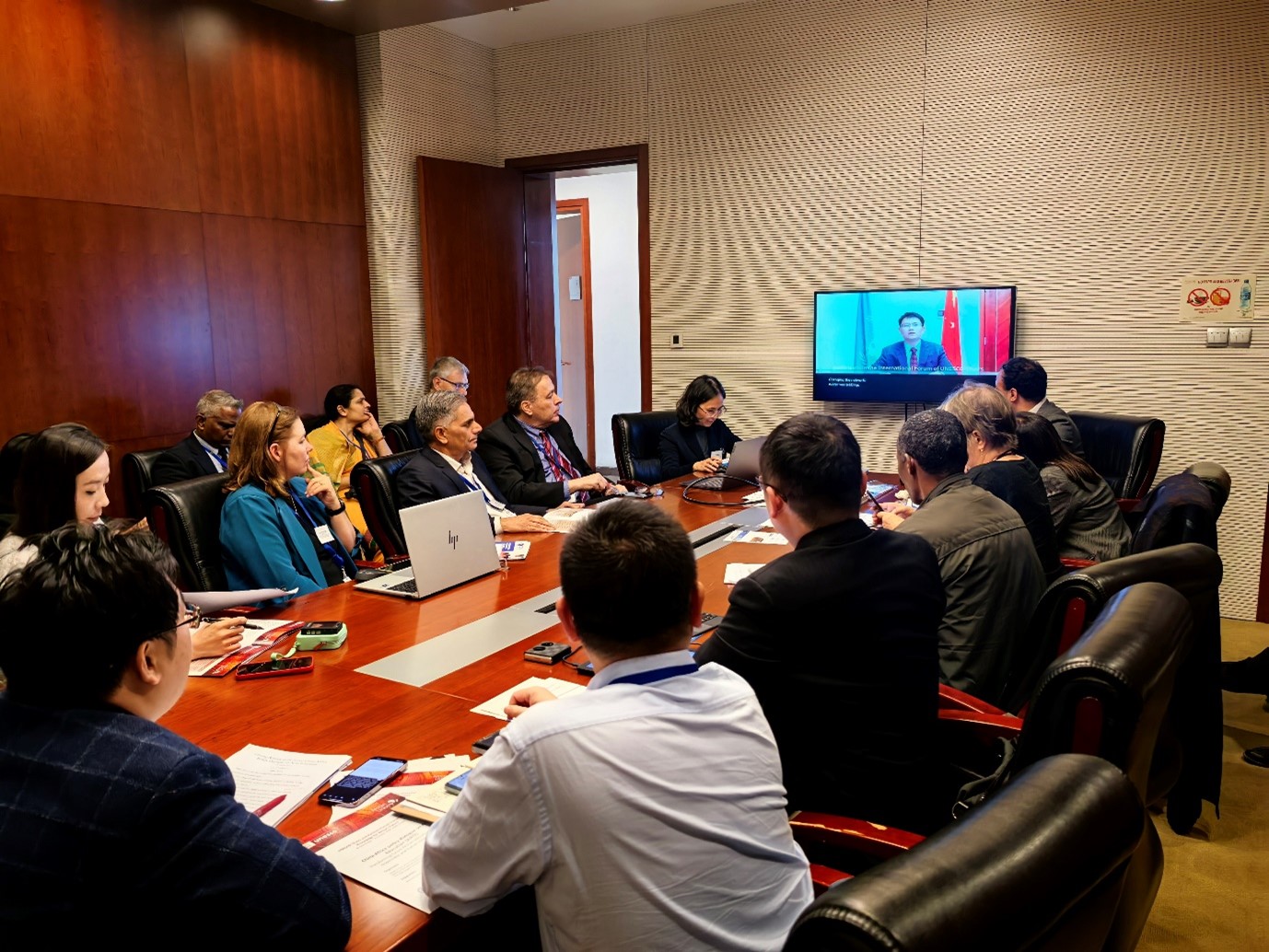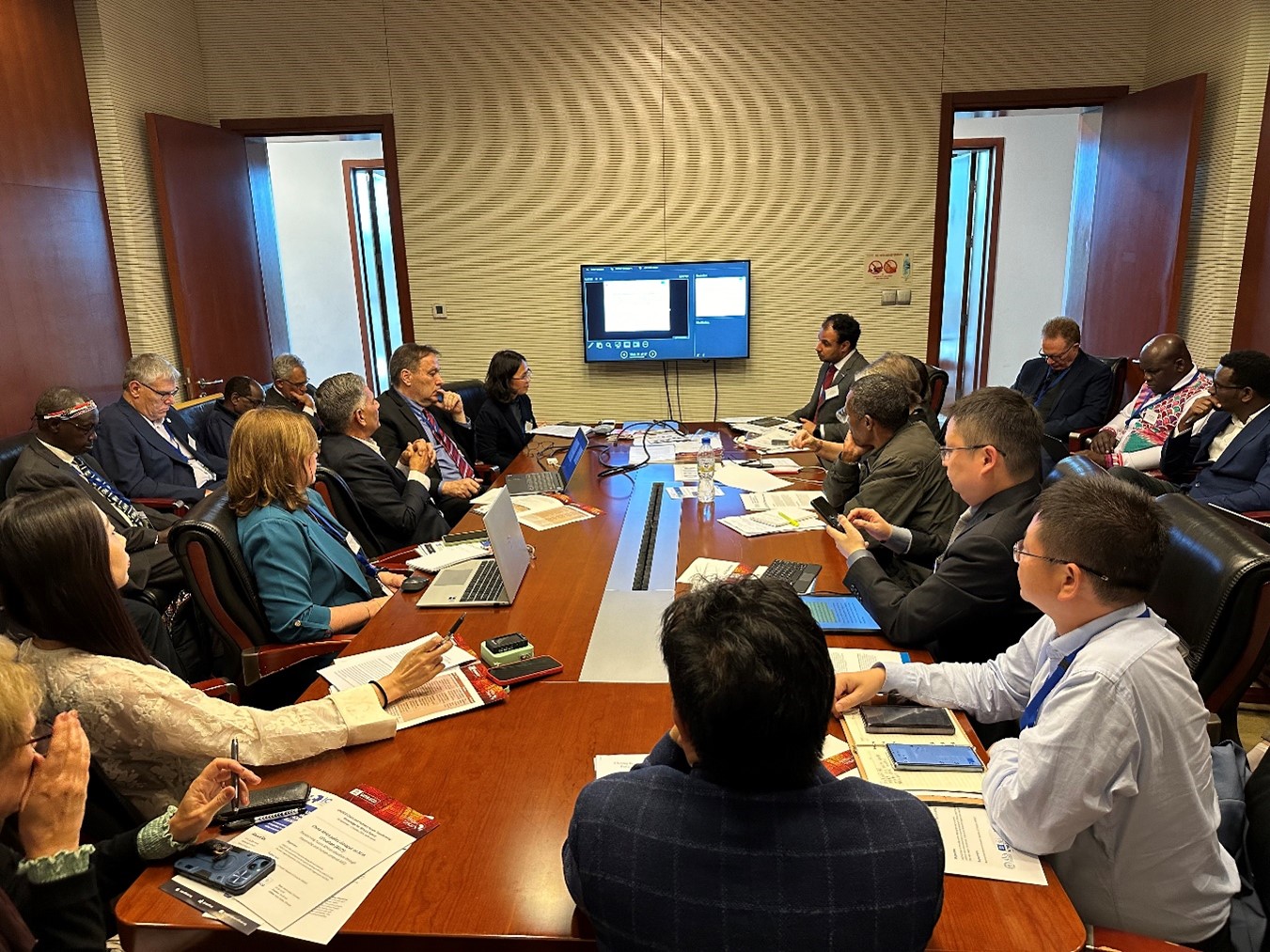The UNESCO Chair on AI in Education convened a parallel session in Addis Ababa, Ethiopia, to transform the future of African education through responsible and human-centered artificial intelligence in education
date:2024-10-07 17:15author:adminsource:Smart Learning Instituteviews:
The International Forum of UNESCO Chairs and Partners, organized by the African Union Commission and UNESCO, was held from 30th September to 2nd October 2024 in Addis Ababa, Ethiopia. Under the patronage of H.E. Sahle-Work Zewde, the President of Ethiopia, the event featured several sessions focused on transforming knowledge for Africa’s future.
Within this event, the UNESCO chair on AI in education at Beijing Normal University, China, organized a parallel session focusing on transforming the future of African education through responsible and human-centered Artificial Intelligence in education. This session is co-organized by the UNESCO Chair on AI in Education-Beijing Normal University, the UNESCO International Institute for Capacity Building in Africa (UNESCO IICBA), the UNESCO International Research and Training Centre for Rural Education (UNESCO INRULED), and the Arab League Educational, Cultural and Scientific Organization (ALECSO). This session was also supported by the National Commission of the People's Republic of China for UNESCO.
The welcoming remarks were first provided by Dr. Quentin Wodon, the director of UNESCO's International Institute for Capacity Building in Africa (IICBA), where he elaborated on the institute’s works on research and policy dialogue. Mr. Songyun Zhang, a representative of the National Commission of the People's Republic of China, further provided welcome remarks, highlighting the collaboration between China and Africa on diverse matters, including the future of African education facilitated by Artificial Intelligence.
Within this event, the UNESCO chair on AI in education at Beijing Normal University, China, organized a parallel session focusing on transforming the future of African education through responsible and human-centered Artificial Intelligence in education. This session is co-organized by the UNESCO Chair on AI in Education-Beijing Normal University, the UNESCO International Institute for Capacity Building in Africa (UNESCO IICBA), the UNESCO International Research and Training Centre for Rural Education (UNESCO INRULED), and the Arab League Educational, Cultural and Scientific Organization (ALECSO). This session was also supported by the National Commission of the People's Republic of China for UNESCO.
The welcoming remarks were first provided by Dr. Quentin Wodon, the director of UNESCO's International Institute for Capacity Building in Africa (IICBA), where he elaborated on the institute’s works on research and policy dialogue. Mr. Songyun Zhang, a representative of the National Commission of the People's Republic of China, further provided welcome remarks, highlighting the collaboration between China and Africa on diverse matters, including the future of African education facilitated by Artificial Intelligence.

Mr. Songyun Zhang, a representative of the National Commission of the People's Republic of China for UNESCO
After the welcoming remarks, keynote speakers from China and Africa shared their insights about how AI is used in their countries. Dr. Dharm Singh, the chairholder of the UNESCO Chair on Secure High-performance Computing for Higher Education and Research in Namibia, discussed the importance of secure computing in leveraging AI for educational advancements in Africa, specifically Namibia. Dr. Gong Wang, the director of the analysis, testing, and supercomputing center of Shanghai Normal University, highlighted the role of supercomputing in enhancing AI applications in education in China.
Dr. Ahmed Tlili, Associate Professor of Beijing Normal University, then led the round table discussion with several experts to discuss the challenges of AI in several African countries. Dr. Dorothy Joy Laubscher, the chairholder of the UNESCO Chair on Multimodal Learning and Open Educational Resources from North-West University in South Africa, focused on integrating multimodal learning with AI to improve educational accessibility. Dr. Marleen Temmerman, the chairholder of the UNESCO Chair on Youth Leadership in Science, Health, Gender, and Education at the Aga Khan University in Kenya, addressed AI’s potential in fostering youth leadership and gender equality in education in Africa. Dr. Temtim Assefa, an associate professor at Addis Ababa University, Ethiopia, highlighted the challenges teachers and students face in adopting Artificial intelligence. This has led the university to develop its institutional policies to catalyze the use of artificial intelligence. From an industry perspective, Ms. Qian Zhang, a representative from DFRobot in the People’s Republic of China, presented AI-driven educational tools and their impact on student engagement. Mr. Jipeng Ruan, the founder and chairman of Beijing Jinsha River Technology Co., Ltd., discussed innovative AI technologies and their practical applications in African education systems.

The forum on transforming the future of African education through responsible and human-centered Artificial Intelligence in Education
In the closing remarks, Dr. Haijun Zeng, the vice dean of the Smart Learning Institute at Beijing Normal University, and Dr. Ahmed Tlili, an Associate Professor from Beijing Normal University, concluded the session with an emphasis on fostering international collaborations to ensure the responsible integration of AI in education, highlighting the importance of cross-country collaboration between China and African countries. Additionally, the China-Africa Community of Practice (CoP) on Artificial Intelligence in Education (AIED) was launched. Key takeaways from the session include the following:
• Integration of AI: AI should be integrated responsibly, focusing on enhancing educational outcomes while preserving cultural contexts.
• Ethical Considerations: The development of AI tools must consider ethical implications and aim to support human-centered education.
• Collaborative Efforts: International partnerships are crucial for sharing resources, knowledge, and best practices.
• Youth and Gender Focus: AI in education should empower youth leadership and promote gender equality.

